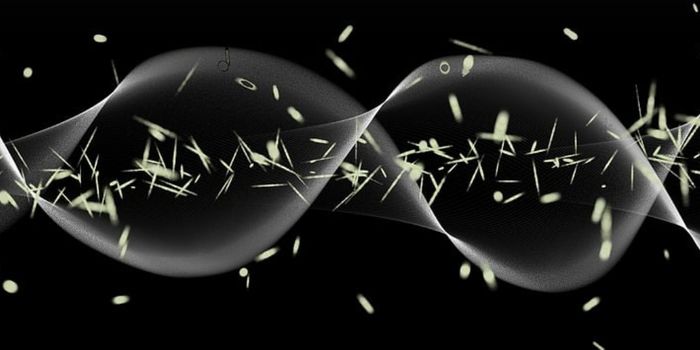Researchers, including a group at the Department of Psychology at the Technische Universitat Dresden in Germany, have wondered whether the serotonin transporter gene-linked polymorphic region (5-HTTLPR) is associated with higher vulnerability to psychiatric diseases when exposed to environmental challenges. Possibly explaining genotype-dependent differences in stress sensitivity, these researchers evaluated the association of 5-HTTLPR genotype and cortisol reactivity to acute psychosocial stress (http://www.researchgate.net/publication/230790613_The_serotonin_transporter_gene-linked_polymorphic_region_(5-HTTLPR)_and_cortisol_stress_reactivity_a_meta-analysis). Clearly, the variations on this gene were no laughing matter.

Now that same gene, which has been linked to both marital bliss and sadness, is thought to make some people more prone to spontaneous smiles and bursts of laughter. For a new study, researchers looked at two versions of 5-HTTLPR and determined that people with the short version were more likely to smile and laugh while looking at "Far Side" and New Yorker cartoons and humorous clips from the movie Strangers in Paradise (http://www.futurity.org/laughter-genes-935442/).
Published in the journal, Emotion, and reported on futurity.com, the study entailed videotaping the facial expressions of 336 participants and coding them for genuine signs of amusement, such as crow's feet around the eyes, after collecting their saliva samples to determine if they had the long or short version of the 5-HTTLPR gene. People with the short allele showed more authentic smiles and laughter than those with the long-allele. In an earlier study people with the short variant of 5-HTTLPR appeared to be more sensitive to their spouse's positive and negative emotions, causing researchers to suggest that DNA is related to marital satisfaction.
The new study "provides a more complete picture of the emotional life of people with the short allele," according to lead author Claudia Haase, assistant professor of human development and social policy at Northwestern University. Study senior author Robert Levenson, professor of psychology at the University of California, Berkeley, added, "This study provides a dollop of support for the idea that positive emotions are under the same tent as negative ones, when it comes to the short allele. It may be that across the whole palette of human emotions, these genes turn up the gain of the amplifier. It sheds new light on an important piece of the genetic puzzle."
Other researchers from UC Berkeley, and from UC San Francisco and University of Geneva are coauthors of the study.









